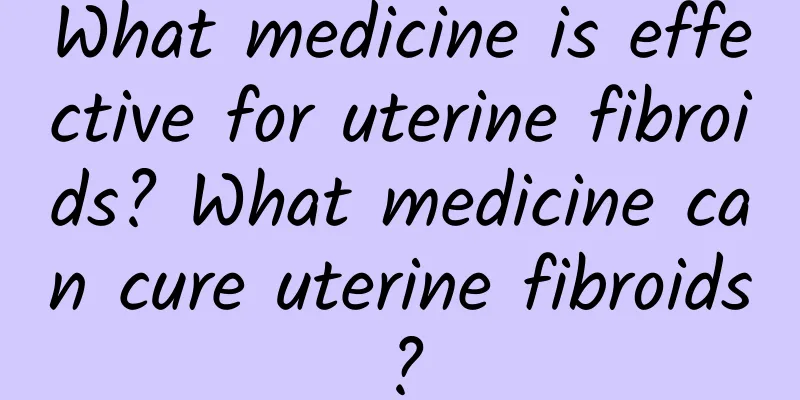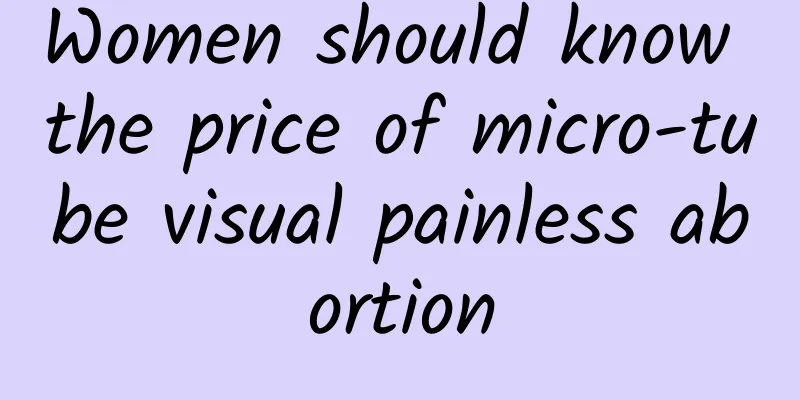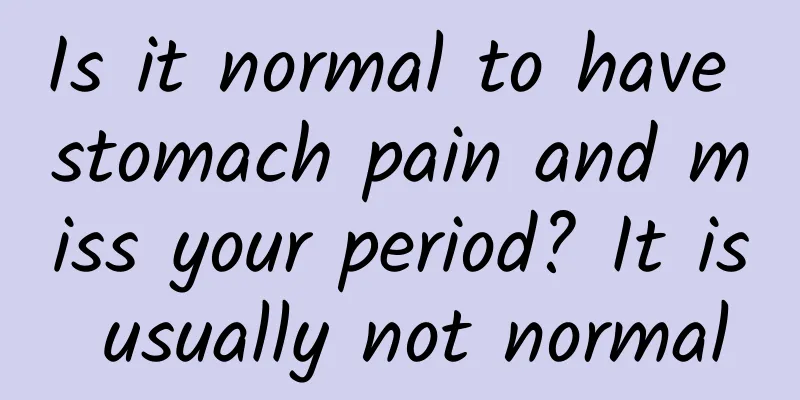What medicine is effective for uterine fibroids? What medicine can cure uterine fibroids?

|
Uterine fibroids are a common benign tumor in women, usually appearing in the uterine wall. The disease is often accompanied by symptoms such as irregular menstruation, abdominal pain and abnormal vaginal bleeding, which cause trouble to patients. Therefore, many patients will ask a question: Is there any medicine that can help with uterine fibroids? Next, let's learn about it together. Learn about common treatments for uterine fibroids There are many ways to treat uterine fibroids, such as surgical resection, drug therapy, etc. However, choosing the right treatment method needs to be determined based on the condition and individual differences of the patient. The question of whether taking medicine is useful for uterine fibroids is actually not easy to answer. Because everyone's condition is different, the best treatment plan needs to be determined based on individual circumstances. Surgical resection: an effective treatment option For some patients, surgical resection is one of the most effective ways to treat uterine fibroids. The purpose of surgical resection is to completely remove the uterine fibroids to relieve the patient's symptoms. Usually, surgery is performed when the uterine fibroids are large or the symptoms are more obvious. After a successful operation, the patient's symptoms will be significantly relieved. Medication: A way to balance the condition In some cases, medication can be used as an option for treating uterine fibroids. The goal of medication is to relieve the patient's symptoms by regulating hormone levels. Common treatment drugs include oral contraceptives and progesterone drugs. However, it should be noted that medication cannot completely cure uterine fibroids, but can only provide a certain degree of relief. Individualized treatment: Choose treatment based on your own condition Individualized treatment is an important principle in treating uterine fibroids. The answer to the question of whether any medicine is effective for uterine fibroids is not fixed and needs to be determined according to individual conditions. When faced with treatment options, patients should fully understand their condition, consult a doctor for professional advice, and develop a suitable treatment plan under the guidance of a doctor. Dietary conditioning: the impact of correct eating habits on the disease In addition to medication and surgical removal, dietary conditioning can also help relieve the symptoms of uterine fibroids to a certain extent. Maintaining a good diet and limiting the intake of excessive salt, sugar and high-fat foods can help control hormone levels and relieve symptoms. Eating more fiber-rich foods, such as fresh fruits, vegetables and whole grains, can help improve gastrointestinal health and promote waste elimination. Uterine fibroids are a common gynecological disease that causes trouble for patients. In response to the question often asked by patients, "What medicine is useful for uterine fibroids?", we learned that choosing the right treatment method needs to be determined based on individual circumstances. Surgical resection and drug therapy are common treatment methods, and dietary conditioning can also relieve symptoms to a certain extent. The most important thing is to consult a doctor in time and develop an individualized treatment plan to relieve the condition as soon as possible and improve the quality of life. |
Recommend
Take good care of your vagina to prevent vaginitis
In daily life, we can prevent the occurrence of v...
How to treat chronic cervicitis in women? What are the advantages of ozone treatment for chronic cervicitis in women?
In life, many women suffer from gynecological dis...
What are the typical symptoms of uterine fibroids?
It is very important for women to maintain good h...
What are the symptoms of ovarian cyst syndrome? Is it a disease?
What are the symptoms of ovarian cyst syndrome? I...
What Chinese medicine should I take after myomectomy? What nutrition should I take after myomectomy?
What Chinese medicine should I take after myomect...
Early symptoms of ectopic pregnancy
Early symptoms of ectopic pregnancy: Ectopic preg...
What are the indications for drug treatment of uterine fibroids?
The treatment of uterine fibroids depends on the ...
What will happen if you don't see a doctor if you have vaginitis?
Vaginitis is a common reproductive tract infectio...
Experts introduce the prevention methods of vulvar leukoplakia
The methods of preventing vulvar leukoplakia have...
What should I do if my menstruation doesn’t come after an abortion?
What should I do if my menstruation doesn’t come ...
Do you know how to diagnose vulvar leukoplakia?
Nowadays, vulvar leukoplakia has become a gynecol...
What medicine should be used for vaginal discharge that looks like tofu dregs? Determine the disease based on symptoms
Regarding the problem of leucorrhea that looks li...
Does abnormal vaginal discharge affect men?
Abnormal vaginal discharge usually does not direc...
Aerobic skipping helps lose weight. Keep skipping is the trick.
(Author: Park Gye-hwan, Bian Xuesheng, Diet Marke...
What are the methods to preserve pregnancy during spontaneous abortion? There are many methods to preserve pregnancy in medicine.
Nowadays, many women have spontaneous abortions d...


![[Your own health is your own decision - Eat and move campaign] Whoo Post Cleansing Milk Award Winners Announced](/upload/images/67dcfdda47a56.webp)






